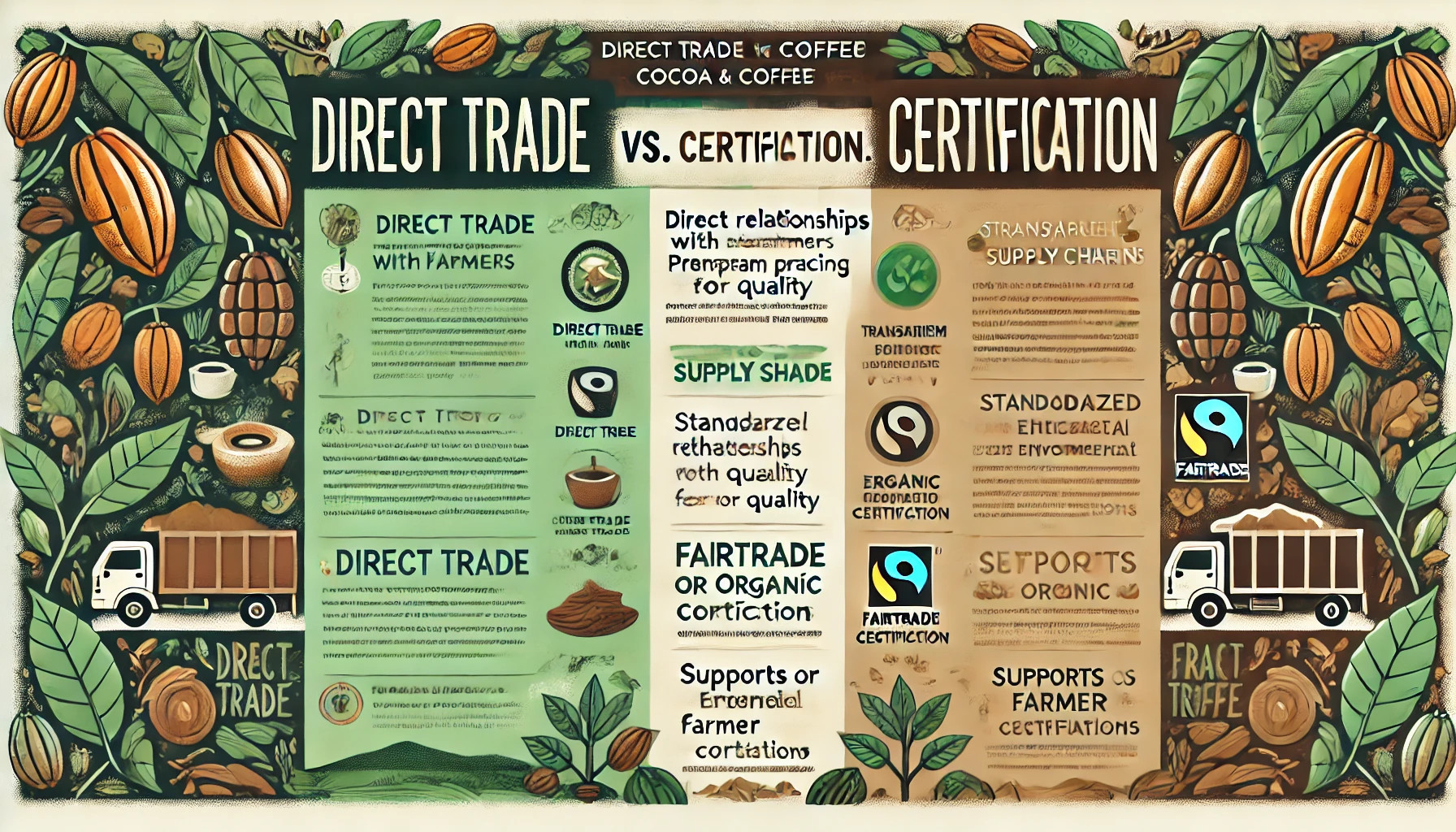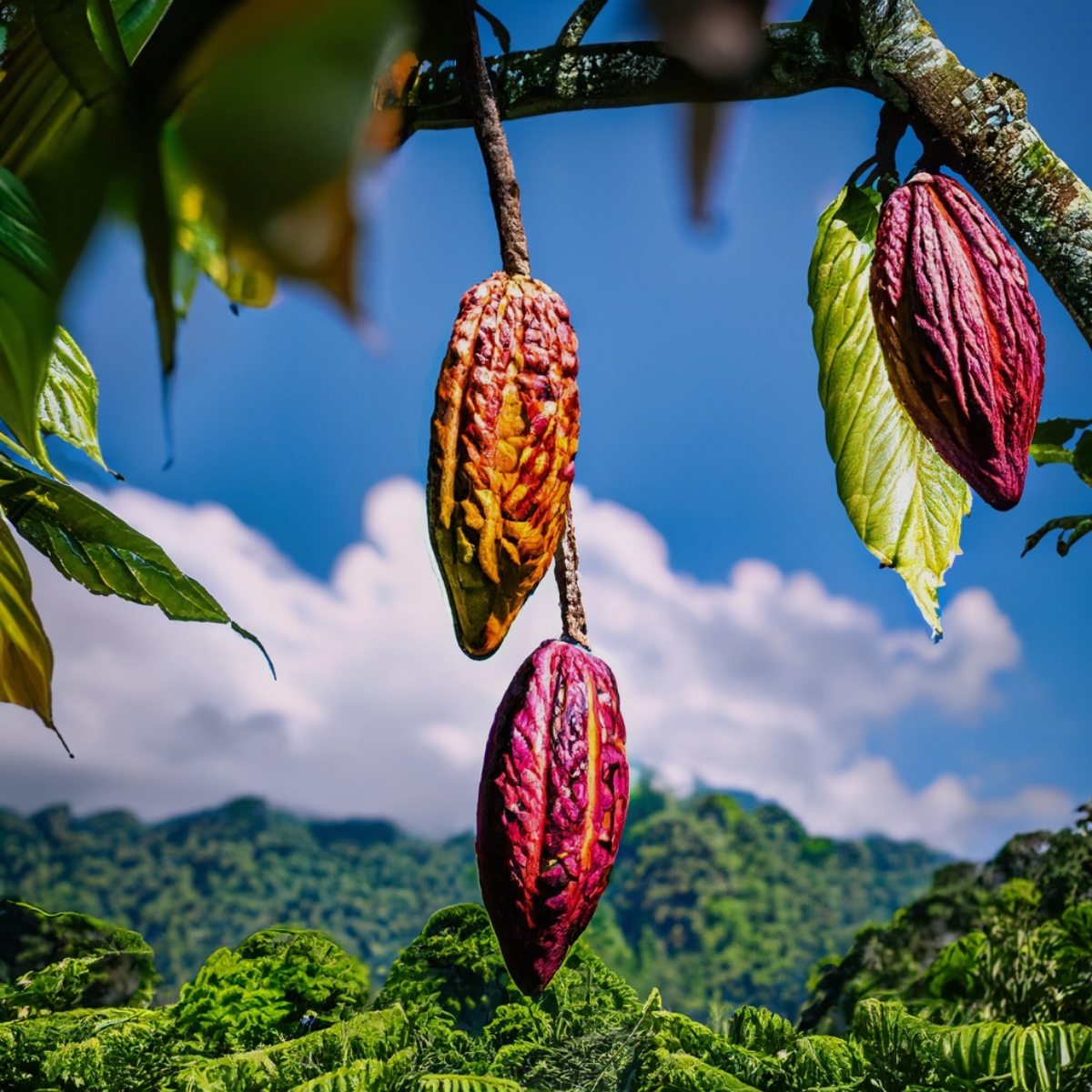The cocoa market is a complex web of players and processes. While global chocolate consumption has been on the rise, cocoa production faces challenges due to factors such as low crop yields, limited farming expertise, and the prevalence of pests and disease. Moreover, critical issues like child labour in cocoa production and deforestation are rooted in deeper problems, including poverty and weak governance structures. In response, various certification systems have been created to address these issues, aiming for a more ethical cocoa supply chain.
In this article, i will try unwrap the bar to reveal the intricacies of cocoa certification and its importance for promoting sustainability within the chocolate industry.
Understanding Cocoa Certification
Cocoa certification involves a formal evaluation by certifying bodies to ensure that cocoa meets specified standards. Certification demonstrates that key stakeholders in the supply chain uphold criteria that protect human rights, enhance agricultural practices, minimise deforestation, and improve conditions for cocoa farmers.
Different certifications focus on unique aspects of sustainable cocoa production. For instance, Fairtrade Certified promotes fairtrade relationships and fair pricing, while UTZ Certified (now part of the Rainforest Alliance) aims to increase productivity and sustainability. Despite their varying methods, all certifications work towards improving farmers' livelihoods, enhancing agricultural practices, and supporting cocoa-producing communities.
Fairtrade emphasises fair trade and payment practices, distinguishing it from other systems. While it doesn't primarily focus on increasing yields, UTZ and Rainforest Alliance certifications concentrate on yield improvement and sustainable practices, ultimately helping reduce risks for farmers.
Why is Cocoa Certification Important?
Certification serves as a guarantee by independent bodies that cocoa production meets certain standards. These standards often include environmental conservation (such as soil protection, water conservation, and responsible pesticide use), social issues (like fair wages and workers' rights), and product quality.
By enforcing these requirements, certifications protect local ecosystems, promote sustainable agriculture, safeguard workers' health, and benefit both producers and consumers.
 Direct Trade vs. Certification: A Common Debate
Direct Trade vs. Certification: A Common Debate
One frequent critique of certification is its cost. Certification fees—including audits, compliance checks, and administrative costs—can be a financial burden on small cocoa farmers. In some cases, direct trade provides an alternative, offering a larger share of profits to farmers by bypassing certification fees.
Through direct trade, buyers can negotiate directly with farmers, ensuring fair prices and building relationships based on trust and mutual benefit. This approach fosters sustainability and allows for better communication of farmers' needs, leading to a more collaborative approach.
However, certification bodies play a crucial role in oversight, acting on behalf of those unable to visit cocoa-producing regions regularly. Certifications add a layer of transparency and accountability, ensuring ethical and sustainable practices in international supply chains.
Sustainability Challenges in Cocoa Production
The cocoa industry faces numerous sustainability challenges, including poverty, which often results in child labour and food insecurity among farmers. Poverty also limits farmers' capacity to invest in crop improvement, reducing yields and making crops more vulnerable to pests and diseases. This may drive deforestation as farmers clear new land to compensate for poor yields on existing plots.
How Certification Supports Sustainable Cocoa Cultivation
Several initiatives from governments and the private sector aim to improve sustainability in cocoa production. Since cocoa farming often occurs in tropical forests, sustainable practices are essential for forest conservation and biodiversity protection. Certification programmes encourage practices that protect the environment and help farmers adapt to market changes.
 Types of Cocoa Certifications
Types of Cocoa Certifications
There are various cocoa certification programmes promoting ethical and sustainable practices:
Rainforest Alliance Certification
UTZ Certification (now part of Rainforest Alliance)
Fairtrade Certification
FLOCERT
National Organic Program (NOP)
In addition, niche certifications like Demeter for biodynamic farming and Small Producers' Symbol (SPP) support specific markets, such as small-scale producers.
Many major chocolate companies have their own sustainability programmes:
Nestlé: The Nestlé Cocoa Plan
Mondelez: Cocoa Life
Mars: Cocoa for Generations
Lindt & Sprüngli: Farming Program
Barry Callebaut: Forever Chocolate
Cargill: Cocoa Promise
The Growth of the Certified Cocoa Sector
In 2008, certified cocoa represented only a small portion of the global market. However, by 2020, major brands like Nestle and Mars committed to using certified cocoa, reshaping the market. Between 2020 and 2025, certified cocoa is projected to grow, driven by Fairtrade, Rainforest Alliance, and organic certification.
Why Choose Certified Cocoa?
By choosing certified cocoa products, we contribute to better conditions for cocoa farmers, reduce environmental impacts, and help conserve tropical forests. Supporting ethically-sourced chocolate not only benefits farmers but also allows consumers to enjoy a treat that supports people and the planet.

